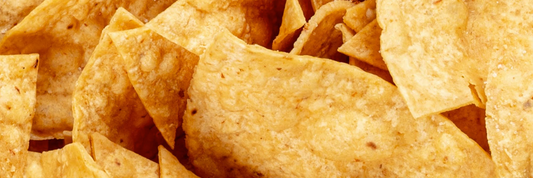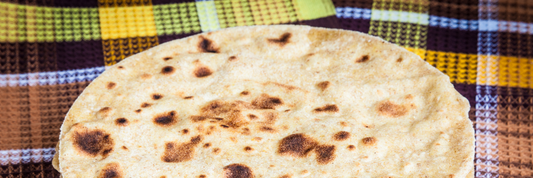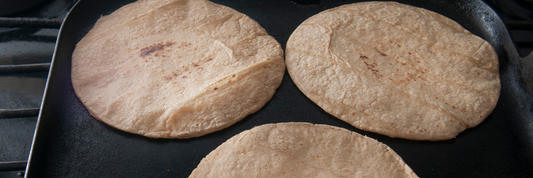The dairy-free movement has revolutionized how we approach traditional cooking ingredients, and vegan butter stands at the forefront of this change. As more people embrace plant-based lifestyles for health, environmental, or ethical reasons, the demand for convincing dairy alternatives has skyrocketed. Vegan butter has evolved from a niche product to a mainstream staple that can be found in most grocery stores today.
Whether you're completely plant-based, lactose intolerant, or simply curious about reducing your dairy consumption, understanding vegan butter is essential for modern cooking. This comprehensive guide will explore everything from its composition and taste to cooking applications and brand recommendations.
What Is Vegan Butter?
Vegan butter is a plant-based alternative to traditional dairy butter, designed to replicate the taste, texture, and functionality of conventional butter without using any animal products. Unlike dairy butter, which is made from churned cow's milk cream, vegan butter combines various plant oils, emulsifiers, and flavor enhancers to create a similar product.
The fundamental difference lies in the source ingredients. While dairy butter contains milk solids, water, and sometimes salt, vegan butter relies entirely on plant-based components. This distinction makes vegan butter suitable for those following vegan diets, individuals with dairy allergies, and people with lactose intolerance.

Is vegan butter dairy free?
Yes, vegan butter is completely dairy-free and plant-based. It contains no milk, cream, or any other dairy derivatives, making it safe for those avoiding dairy products for any reason.
Many people confuse vegan butter with margarine, but there are important differences. While some margarine products are dairy-free, many contain dairy derivatives like whey or casein. Traditional margarine was also heavily processed and often contained trans fats, though modern formulations have improved significantly. Vegan butter, on the other hand, is specifically formulated to be completely plant-based and often uses higher-quality oils and more natural ingredients.
Is vegan butter gluten-free?
Most vegan butter brands are gluten-free, but it's always important to check the label. Some products may contain gluten-containing ingredients or be processed in facilities that handle wheat, so reading ingredient lists is crucial for those with celiac disease or gluten sensitivity.
What Is Vegan Butter Made From?
Core Ingredients
Understanding what goes into vegan butter helps explain its properties and performance in cooking. The foundation of most vegan butters is a carefully balanced blend of plant-based oils, each contributing specific characteristics to the final product.
What is vegan butter made from?
The primary component is typically a blend of plant-based oils including coconut oil, canola oil, avocado oil, sunflower oil, and sometimes olive oil. Coconut oil provides the solid structure at room temperature, while liquid oils like canola contribute to spreadability and mouthfeel.
Emulsifiers play a crucial role in creating the right texture. Lecithin, sourced from soy or sunflower, helps bind the oil and water components together, preventing separation and creating a smooth consistency similar to dairy butter.
To achieve that characteristic buttery flavor, manufacturers add various ingredients including natural flavors, acids like vinegar or lemon juice for tanginess, and natural colors such as beta-carotene or turmeric to create the familiar yellow tint we associate with butter.
Does vegan butter contain palm oil?
Some vegan butter brands do contain palm oil, which provides excellent texture and stability. However, due to environmental concerns surrounding palm oil production, many consumers prefer brands that either avoid palm oil entirely or use certified sustainable palm oil. Always check the ingredient list if this is a concern for you.

Taste & Texture: Does Vegan Butter Feel Like Real Butter?
Taste Experience
The million-dollar question for many people considering vegan butter is whether it actually tastes like the real thing. The answer largely depends on the specific brand and formulation you choose.
Does vegan butter taste like real butter? Modern vegan butters have come remarkably close to replicating the taste of dairy butter. The best brands achieve a rich, creamy flavor that satisfies even long-time dairy butter users. However, there can be subtle differences that some people notice, particularly in the aftertaste.
Is the taste of vegan butter buttery or artificial? This varies significantly by brand. Premium brands like Miyoko's use culturing processes similar to traditional butter-making, creating complex, tangy flavors that closely mimic dairy butter. These cultured vegan butters develop the same acidic notes that give real butter its distinctive taste.
Less expensive brands may have a more neutral flavor profile, while some budget options might taste slightly artificial or have a noticeable coconut flavor if coconut oil is the primary ingredient.
Texture & Meltability
Is the texture of vegan butter similar to dairy butter? When properly chilled, high-quality vegan butter has a remarkably similar texture to dairy butter. It should be firm but not rock-hard from the refrigerator, and it should soften to a spreadable consistency at room temperature.
Does vegan butter melt like regular butter? Most vegan butters melt similarly to dairy butter, especially those with coconut oil as a primary ingredient. The melting point of coconut oil is around 76°F (24°C), which is close to the melting point of dairy butter. This makes vegan butter perform well in cooking applications where melting is important.
Some brands have perfected this aspect better than others. Miyoko's, for example, offers cultured vegan butter that not only tastes authentic but also has the proper melting characteristics for both spreading and cooking.
Cooking with Vegan Butter: Can You Bake, Fry, and Sauté?
Baking
Can I use vegan butter for baking? Absolutely. Many vegan butter brands are specifically formulated to behave like dairy butter in baking applications. They provide the necessary fat content and structure for cookies, cakes, pastries, and other baked goods.
The key is understanding that different brands may perform slightly differently. Some work better for cookies where you want crispy edges, while others excel in flaky pastries. Many professional bakers have found that vegan butter can produce results that are virtually indistinguishable from those made with dairy butter.
When baking with vegan butter, use it at the same temperature and in the same quantities as you would dairy butter. The creaming process for cookies and cakes works the same way, and the final texture should be very similar.
Frying and Sautéing
Is vegan butter good for frying? Vegan butter can be used for light frying and sautéing, but it's important to understand its limitations. Most vegan butters have similar smoke points to dairy butter, which means they're suitable for medium-heat cooking but not high-heat frying.
Can vegan butter be used for sautéing vegetables? Yes, vegan butter works excellently for sautéing vegetables, cooking eggs (if you eat them), and other medium-heat cooking applications. The coconut oil base in many vegan butters provides good heat stability for typical stovetop cooking.
For high-heat cooking, you might want to use a neutral oil instead, just as you would with dairy butter. The flavor compounds and milk solids in both dairy and vegan butter can burn at high temperatures, creating unpleasant tastes.

Is Vegan Butter Healthy?
Nutrition Overview
Is vegan butter healthy? The healthiness of vegan butter depends largely on its ingredients and how it fits into your overall diet. Many vegan butters are made primarily from coconut oil, which is high in saturated fats. While these are plant-based saturated fats, they still contribute to your daily saturated fat intake.
However, vegan butter typically contains fewer additives than traditional margarine and doesn't contain the milk solids found in dairy butter. Some brands focus on using healthier oil blends that include more unsaturated fats from oils like avocado or olive oil.
Does vegan butter contain trans fats? Most modern vegan butter brands don't contain trans fats, but it's always wise to check the label. The food industry has largely moved away from trans fats due to their negative health effects, and quality vegan butter manufacturers avoid them entirely.
Heart Health and Cholesterol
Is vegan butter good for heart health? This is a complex question that depends on the specific formulation and your individual health profile. Vegan butter has some advantages over dairy butter from a cardiovascular perspective.
Is vegan butter high in saturated fats? Many vegan butters are high in saturated fats, particularly those made primarily from coconut oil. However, they typically contain less saturated fat than dairy butter, and the saturated fats come from plant sources rather than animal sources.
Is vegan butter lower in cholesterol than dairy butter? Yes, vegan butter contains zero cholesterol because cholesterol is only found in animal products. This is a significant advantage for people managing their cholesterol levels or those at risk for heart disease.
Research from Harvard and other institutions suggests that replacing saturated fats from animal sources with plant-based fats can improve cardiovascular health markers. The plant-based oils used in vegan butter, particularly when they include oils high in omega-3 fatty acids, may offer heart health benefits.
Ethics & Sustainability
Is vegan butter cruelty-free? Yes, vegan butter is completely cruelty-free. It contains no animal ingredients and reputable brands don't test on animals. This makes it suitable for those following vegan lifestyles for ethical reasons.
Is vegan butter environmentally sustainable? Generally speaking, yes. Vegan butter has a significantly lower environmental impact than dairy butter in several key areas.
Is vegan butter better for the planet than regular butter? The environmental benefits of vegan butter are substantial. Dairy butter production requires significant resources including water, land, and feed for cattle, plus it generates methane emissions. Plant-based alternatives typically require fewer resources and produce fewer greenhouse gases.
The carbon footprint of vegan butter is roughly 70% lower than dairy butter, according to environmental studies. Water usage is also dramatically reduced, as dairy farming is extremely water-intensive. However, it's worth noting that some ingredients like palm oil can have their own environmental concerns, which is why choosing brands with sustainable sourcing is important.

Vegan Butter Brands & Where to Buy
Top-Rated Vegan Butter Brands
What are the best vegan butter brands? Several brands have established themselves as leaders in the vegan butter market, each with their own strengths:
- Miyoko's Creamery offers cultured vegan butter with complex, tangy flavors that closely mimic traditional European-style butter. Their products are considered among the most authentic-tasting options available.
- Earth Balance provides affordable, versatile options that work well for both cooking and baking. They offer several varieties including soy-free and olive oil-based options.
- Flora (formerly known as Flora Plant Butter) offers a range of plant-based spreads with good flavor and performance.
- Wayfare produces dairy-free butters that focus on clean ingredients and good taste.
- Monty's offers premium vegan butter with a focus on organic ingredients.
- Wildbrine creates cultured vegan butter using traditional fermentation methods.
- ForA uses innovative ingredients like aquafaba to create luxurious texture and mouthfeel.
Comparisons
What is a good vegan alternative to Kerrygold butter? For those who love the rich, cultured taste of Kerrygold, Miyoko's cultured vegan butter is the closest alternative. It uses similar culturing processes to develop complex flavors and has a rich, creamy texture that satisfies Kerrygold enthusiasts.
Availability
Where can I buy vegan butter? Vegan butter is widely available at most grocery stores today. You can find it at:
- Whole Foods Market (extensive selection)
- Sprouts Farmers Market
- Target and Walmart (limited selection)
- Specialty vegan and health food stores
- Online retailers like Amazon, iHerb, and Thrive Market
Is Earth Balance a good vegan butter? Yes, Earth Balance is widely recommended as a reliable, affordable option. It performs well in most cooking and baking applications and has a pleasant, mild flavor that works for everyday use.
Price Consideration
Is vegan butter expensive? Vegan butter typically costs more than conventional dairy butter, with prices ranging from $4-8 per stick compared to $3-5 for dairy butter.
Why is vegan butter more expensive than dairy butter? Several factors contribute to the higher cost:
- Smaller production scale compared to the massive dairy industry
- Higher-quality plant ingredients often cost more than conventional dairy
- More complex manufacturing processes
- Premium positioning in the market
Is vegan butter worth the cost? Many consumers find the extra cost worthwhile when considering the ethical, environmental, and health benefits. For those with dietary restrictions, the cost becomes less relevant when it's the only suitable option.
Diet Compatibility
Is vegan butter keto-friendly?
Yes, most vegan butters are excellent for ketogenic diets. They're high in fat and contain virtually no carbohydrates, making them perfect for maintaining ketosis.
Can I use vegan butter if I'm lactose intolerant?
Absolutely. Since vegan butter contains no dairy products whatsoever, it's completely safe for people with lactose intolerance. This is one of the primary reasons many people initially try vegan butter.
Is vegan butter suitable for a paleo diet?
This depends on your interpretation of paleo guidelines. Strictly speaking, processed vegan butter wouldn't be considered paleo because it contains emulsifiers and other processed ingredients. However, homemade vegan butter using only coconut oil, salt, and natural flavors might be acceptable to some paleo followers.

Homemade Vegan Butter
Making your own vegan butter allows you to control exactly what goes into it and can be more economical than buying premium brands. Here's a basic recipe:
Basic Homemade Vegan Butter:
- 1/2 cup refined coconut oil (solid but not hard)
- 1/4 cup neutral oil (like canola or sunflower)
- 2-3 tablespoons plant milk (unsweetened)
- 1 teaspoon apple cider vinegar or lemon juice
- 1/2 teaspoon salt
- 1 teaspoon lecithin (optional, for better texture)
Mix all ingredients in a food processor until smooth and creamy. Pour into a container and refrigerate until firm. The mixture will solidify as the coconut oil cools.
Customization options:
- Add nutritional yeast for a slightly cheesy, umami flavor
- Include turmeric for natural yellow coloring
- Use cashew milk instead of other plant milks for richness
- Try aquafaba (chickpea liquid) like ForA does for luxurious texture
Storage vs Shelf Life
How long does vegan butter last?
Most vegan butter brands have a refrigerated shelf life of 2-3 weeks once opened. Unopened packages typically last 2-3 months in the refrigerator, depending on the brand and ingredients used.
Does vegan butter need to be refrigerated?
Yes, vegan butter should be refrigerated to maintain its texture and prevent spoilage. Unlike some plant oils that are shelf-stable, the emulsified nature of vegan butter and the presence of plant milk make refrigeration necessary.
Can vegan butter be frozen for long-term storage?
Absolutely. Vegan butter freezes excellently and can be stored in the freezer for 6-8 months. You can freeze it in ice cube trays for convenient portion sizes or in airtight containers. Thaw in the refrigerator before use, and the texture should return to normal.
Final Thoughts vs Buyer's Guide
Vegan butter has evolved into a versatile, ethical, and flavorful substitute that can satisfy even the most devoted dairy butter fans. The quality and variety available today means there's likely a vegan butter that will work for your specific needs and preferences.
Choose based on your priorities:
For cooking and baking: Earth Balance offers reliable performance at a reasonable price point
For authentic taste: Miyoko's cultured varieties provide the most butter-like flavor experience
For spreading: Look for brands with good meltability and flavor at room temperature
For health consciousness: Choose brands with cleaner ingredient lists and sustainable oil sources
Oil considerations:
- Coconut oil-based: Better texture, higher saturated fat
- Olive oil-based: Heart-healthy profile, may have distinct flavor
- Blended oils: Usually offer the best balance of taste and nutrition
Important factors to check:
- Palm oil content and sustainability certification
- Allergen information (soy, nuts)
- Sodium content if you're watching salt intake
The recommendation is to experiment with different brands to find your personal favorite. What works beautifully for baking might not be your preferred choice for spreading on toast.
Vegan butter represents a perfect example of how plant-based alternatives have matured from compromise products to genuine improvements that offer benefits for health, ethics, and the environment while delivering on taste and functionality.
For health-conscious consumers, those with lactose intolerance, or anyone driven by ethical considerations, vegan butter provides an excellent solution that doesn't require sacrificing flavor or cooking performance. As the market continues to grow and improve, we can expect even better options to emerge in the coming years.







